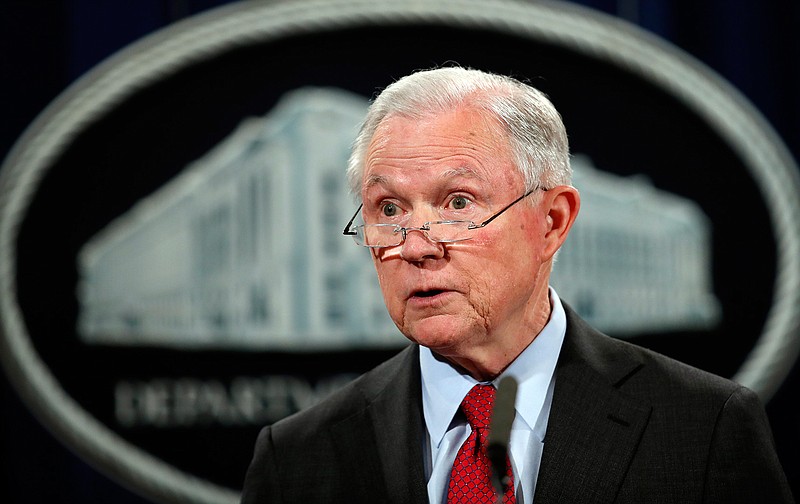Attorney General Jeff Sessions' recent order rescinding Obama-era guidance on federal marijuana law enforcement will not affect Arkansas' fledgling medical cannabis industry, an advocacy group says.
"We have no concerns at all with the announcement that was made," said Corey Hunt, a member of the Arkansas Cannabis Industry Association's board of directors. "As far as Arkansas is concerned, we are 100 percent OK as it stands right now."
On Jan. 4, Sessions issued a memo that rolled back previous Department of Justice directives discouraging federal prosecution of marijuana cases in states that legalize the drug, for either medical or recreational use.
Legislation enacted by Congress, however, protects state-legalized medical marijuana. In 2014 an amendment to a spending bill, known as the Rohrabacher-Farr amendment, effectively established a federal hands-off policy. It prohibits DOJ from spending money to impede medical cannabis activity in states that legalize it.
That means only the states that have legalized recreational marijuana use-Alaska, California, Colorado, Maine, Massachusetts, Nevada, Oregon and Washington-are in new jeopardy because of Sessions' action last week.
"However, the attorney generals have come out in those states, and they've said it's going to be business as normal here, we're going to respect the will of the people," Hunt said, adding that Sessions' memo may have sparked a pro-marijuana backlash.
"What this has done is actually pushed the football forward in some senses, where you're seeing Congress, state attorney generals, state governors, even the governor of Arkansas coming out in favor of the will of the people. We believe Congress will act on this, and that this may have been just the catalyst to push everything forward," he said.
Arkansas Gov. Asa Hutchinson said last week that federal law enforcement should stay away from medical marijuana, citing President Donald Trump's agreement.
"From my perspective, there needs to be a difference in view between medical marijuana and recreational use of marijuana. President Trump has recognized medical marijuana as an appropriate exception to federal enforcement policy, but he's not said the same thing about recreational use," Hutchinson said during a Jan. 4 news conference, according to an Arkansas Times report.
Arkansas voters elected to legalize medical cannabis in November 2016. The state Medical Marijuana Commission is in the process of evaluating hundreds of business license applications. Its decision on who will be allowed to operate five cultivation centers, where the plant will be grown, is expected Feb. 27, and it will grant 32 licenses for dispensaries, where cannabis will be sold, three to four months later.
Two businesses seek to operate dispensaries in Miller County, city unspecified; three to operate dispensaries in Texarkana; and one to operate a cultivation center in the city.
In addition to state-mandated fees, any cultivation centers in Texarkana will pay the city an initial business license fee of $50,000 and thereafter $50,000 a year for renewal. Dispensaries will pay $7,500 for an initial license and $11,250 for renewal.
It may be late this year or early 2019 before the medical marijuana industry is fully operational in Arkansas, Hunt said.
On Twitter: @RealKarlRichter

